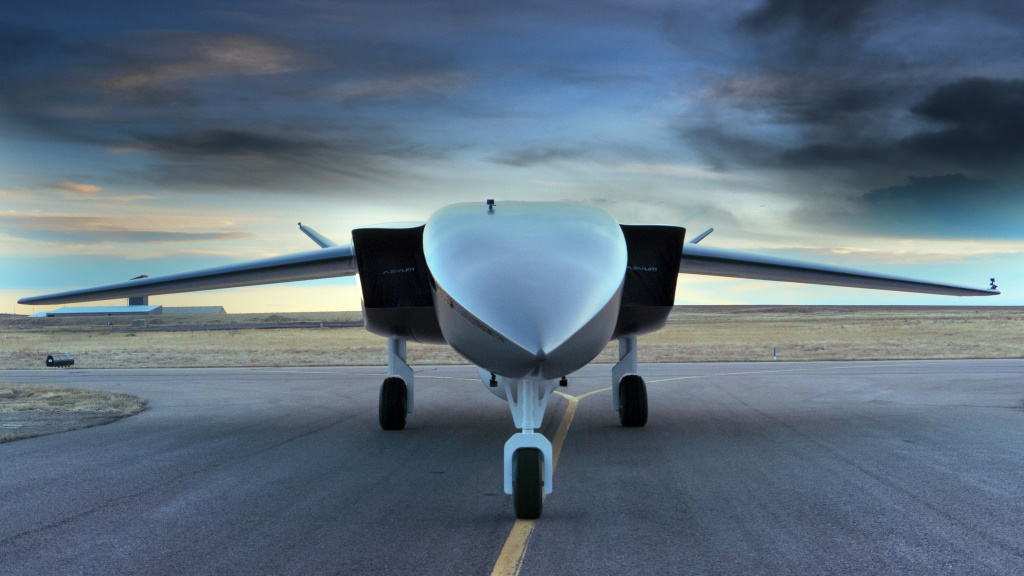



Aevum, Inc. has unveiled its new Ravn X Autonomous Launch Vehicle, which the company claims is the world’s largest Unmanned Aircraft System (UAS) by mass. Ravn X is designed to rapidly deliver satellites to space as fast as every 180 minutes. The system has initially been developed in conjunction with the United States Space Force.
Aevum’s new Autonomous Launch paradigm involves a global, fully-autonomous, self-flying, self-managing, self-operating intelligent system of systems, called the autonomous launch architecture, working together to deliver payloads from anywhere on Earth to any destination in low Earth orbit. The autonomous launch architecture optimizes every launch, taking into account variables including weather conditions, air traffic, orbital destination, payload weight, ground crew schedules, and other complex logistics processes to provide an end-to-end seamless service, autonomously.
The Ravn X Autonomous Launch Vehicle, a key part of the system, is powered by jet fuel and requires a one-mile runway and an 8,000 sf hangar for operation. The aircraft is 80 feet long with a 60 foot wingspan and has a gross takeoff weight of 55,000 lbs. After making its delivery to low Earth orbit, the UAV returns to Earth, autonomously lands on a runway and parks itself in the hangar. The vehicle is currently 70% reusable, with plans to extend this to 95%.
Aevum will offer on-demand scheduling of precision orbital deliveries with its fleet of Ravn X UAVs. According to the company, the new autonomous launch paradigm dramatically lowers the barrier for space access and accelerates improvements in industries such as logistics, intelligence, defense, e-commerce, advanced analytics, climate change and weather monitoring, agriculture, IoT and more.
Jay Skylus, founder and CEO of Aevum, commented: “Aevum is completely reimagining access to space. The current definition of rocket science doesn’t work for us. With Aevum, everyone will be able to say, ‘It is rocket science and I can do it.’ Aevum is pushing logistics to the next generation with software and automation technologies.”
“U.S. leadership has identified the critical need for extremely fast access to low Earth orbit. We’re faster than anybody. To me, space is merely a vantage point from which the next generation can commit global progress. Through our autonomous technologies, Aevum will shorten the lead time of launches from years to months, and when our customers demand it, minutes. This is necessary to improve lives on Earth. This is necessary to save lives.”
Lt. Col. Ryan Rose, Chief of the Space and Missile Systems Center’s Small Launch and Targets Division at Kirtland Air Force Base, said: “I’m excited to see the bold innovation and responsiveness in development today by our small launch industry partners to support emerging warfighter needs. The U.S. Space Force is proactively partnering with industry to support U.S. space superiority objectives. Having a robust U.S. industry providing responsive launch capability is key to ensuring the U.S. Space Force can respond to future threats.





Related Posts
Schiebel to Establish Dedicated UK Entity Expand Defence Operations
Alpha Unmanned Parallel Flight Partnership Targets Long-Endurance Heavy-Lift UAV Operations
Sunhillo to Provide Surveillance Data Fusion for MICH-AIR BVLOS System